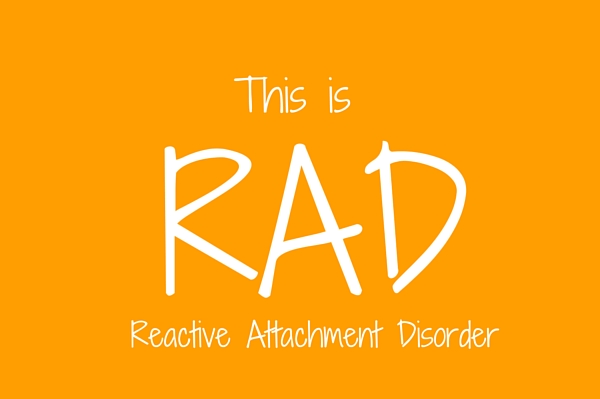

Reactive attachment disorder affects social and emotional well-being.

Being deprived of access to their primary caregiver after forming an emotional bond with them (moving away, the sudden death of the caregiver, etc.).Having many different caretaker figures in their lives, such as being in and out of multiple foster care environments.Instead, they may be anxious or scared around their caretakers, even when appropriate love and care are provided.Īccording to Cleveland Clinic, factors that may cause a child to develop RAD include: Individuals with RAD don’t seek emotional comfort. A painful process then begins in which the adoptive parents attempt to bond with the child, but the child is incapable of returning affection.
#Rad disorder in teenager full#
Sometimes, adoptive parents take in a child without access to a full pre-adoption history. RAD sometimes develops when these nurturing factors are absent. Young children need affection, comfort, and stable relationships to mature emotionally. The condition sometimes occurs in children who were adopted.Ībuse or emotional neglect at an early age may cause RAD.

Reactive attachment disorder (RAD) involves a child’s failure to form emotional bonds with their parents or caretakers. We will cover the basics of the condition as well as what symptoms to look out for and how you can get help for your child. Today, we are going to cover some essential information about reactive attachment disorder in teens. If relationship challenges are not treated during youth, these difficulties may extend into adulthood and impact a person’s ability to bond with others and thrive socially. This struggle is sometimes diagnosed as reactive attachment disorder. The problem may stem from early childhood experiences of neglect, loss, or abuse that left deep emotional wounds. Some children and teenagers have difficulty forming quality relationships with the important people in their lives.


 0 kommentar(er)
0 kommentar(er)
